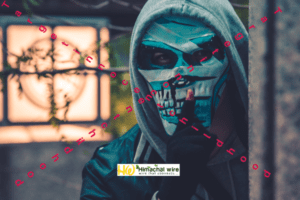The Americans call it ‘Bunny Hunting’. Indian law and order enforcing agencies are yet to coin a term for it. But the threat of children falling prey to hardened criminals active in the cyber world is staring at the society on its face.
What a large number of children are undergoing is an ordeal that is taking its toll on their impressionable psyche and the worst part is that very few of such instances are being reported. This makes laws like Protection of Children from Sexual Offences Act (POCSO) redundant while the criminals have a free run.
The modus operandi is simple. Children surfing the net from their computers or smart phones or even gaming softwares are the target. They are sent messages on chat rooms initially to befriend them. The criminals lure them with chats about gaming or other areas of their interest and gradually move towards indulging in sharing of porn content. The child is unaware of the age or identity of the person with whom he or she is chatting and there is a high possibility of falling prey to paedophiles or those looking out for potential targets of blackmail. Quite often they get the children to send their pictures which they morph and misuse.
A child comes to know very late that the information being given by him to a friendly stranger about himself or herself or their family is being grossly misused. The problem compounds when despite coming to know this the children are reluctant to share their trauma with their parents. Very often it is the fear of their tablets or mobiles or smart phones being taken away from them that stops them from reporting. In addition is the fear of a thrashing or scolding from the parents besides the stigma attached to visiting the police station with such complaints. So where lies the solution to the dilemma of the children as well as the parents. There is a wide belief that a bridge needs to be maintained between the two to avoid the child from further falling into the trap or to be more precise bring him out of it.
The trigger point here might not be when the kids start using the internet, their stalking might start from the parents’ social media profiles. There is a tendency among the people to flood their social media profiles with minutest of details like where they went with their family, what they had for meals, what is the interest area of their child etc.
Parents who are adopting a rational approach towards this issue are of the opinion that it is advisable to limit personal information on the social networking sites. Children should be taught that unknowingly or deliberately sharing personal information can make them vulnerable to criminal . Uploading and sharing photographs on social networking sites or phone applications can invite trouble.
Educating young people about the dangers of the digital realm has become a priority for law enforcement agencies and schools. A key component in preventing such crimes is the monitoring of cyber cafes that are mainly frequented by children. Though it is mandatory the that the cafes should be under CCTV surveillance, a copy of the child’s identity proof must be obtained and and the surfing history of the child be monitored. But this is hardly done.
So where lies the solution to the dilemma of the children as well as the parents. There is a wide belief that a bridge needs to be maintained between the two to avoid the child from further falling into the trap or to be more precise bring him out of it.
The trigger point here might not be when the kids start using the internet, their stalking might start from the parents’ social media profiles. There is a tendency among the people to flood their social media profiles with minutest of details like where they went with their family, what they had for meals, what is the interest area of their child etc.
Parents who are adopting a rational approach towards this issue are of the opinion that it is advisable to limit personal information on the social networking sites. Children should be taught that unknowingly or deliberately sharing personal information can make them vulnerable to criminal . Uploading and sharing photographs on social networking sites or phone applications can invite trouble.
Educating young people about the dangers of the digital realm has become a priority for law enforcement agencies and schools. A key component in preventing such crimes is the monitoring of cyber cafes that are mainly frequented by children. Though it is mandatory the that the cafes should be under CCTV surveillance, a copy of the child’s identity proof must be obtained and and the surfing history of the child be monitored. But this is hardly done. Police officials say that POCSO is a very stringent law put in place to tackle such crimes. But the loop hole remains that very few people come forward to report their child being exploited in the cyber world.
This act is designed to protect the children below 18 years of age from offenses of sexual assault, sexual harassment and pornography and provides for establishment of special courts for trial of such offenses and for matters connected there with.]]>
Police officials say that POCSO is a very stringent law put in place to tackle such crimes. But the loop hole remains that very few people come forward to report their child being exploited in the cyber world.
This act is designed to protect the children below 18 years of age from offenses of sexual assault, sexual harassment and pornography and provides for establishment of special courts for trial of such offenses and for matters connected there with.]]>





Well done
Very informative